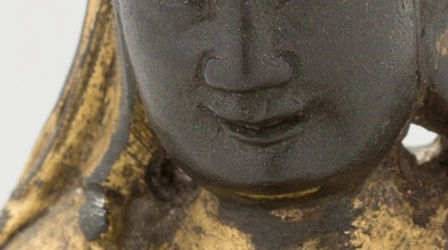Contemplating Death
Subscribe to this topic via: RSS
Maraṇasati and how Buddhists handle mortality.
Caution! Under Construction
Please be aware that this tag is still under construction and as such is missing information and may be changed or removed at any time. For all the content under consideration for this tag, see the “Contemplating Death” folder on Google Drive.
Table of Contents
Books (3)
Canonical Works (26)
Featured:
-
⭐ Recommended
Oh if I’d only live as long as it takes to breathe out after breathing in, or to breathe in after breathing out, I’d focus on the Buddha’s instructions and I could really achieve a lot.
-
⭐ Recommended
But even though the Buddha dropped such an obvious hint, such a clear sign, Ānanda didn’t beg the Buddha, ‘Sir, may the Blessed One please remain for the eon!’
-
⭐ Recommended
Suppose your clothes or head were on fire. In order to extinguish it, you’d apply intense enthusiasm, effort, zeal, vigor, perseverance, mindfulness, and situational awareness. In the same way, in order to give up those bad, unskillful qualities, that mendicant should apply intense enthusiasm …
-
⭐ Recommended
… mendicants, live as your own island, your own refuge, with no other refuge. Let the teaching be your island and your refuge
-
The Buddha assures a layman that some people, while subject to death, have truly overcome the fear of death.
-
Some excellent thoroughbred people are like this
-
A wise man is not deluded by what is perceived by the senses. He does not expect purity by any other way.
-
I’m not afraid
of danger
of fear
See also:
Readings (20)
Featured:
-
… individuals with high self-esteem did not respond to mortality salience with increased worldview defense, whereas individuals with moderate self-esteem did.
-
… consumers faced with mortality salience tend to increase overconsumption likelihood when they have a weak belief in karma.
-
🥇 Best of
I swear, you will wake–
& mistake these walls
for skin. -
Although buddhas and bodhisattvas came in the past,
Their activities pervading throughout the three realms,
Now they are no more, and only their names remain,
Still, in this they are teachers of impermanence.
See also:
Audio/Video (16)
Featured:
-
Professor Karen Derris talks about how Buddhist stories, often dismissed by Western scholars, became a major source of inspiration for her since her diagnosis with stage four brain cancer.
66 min -
Where am I going? I don’t quite know.
5 min
See also:
